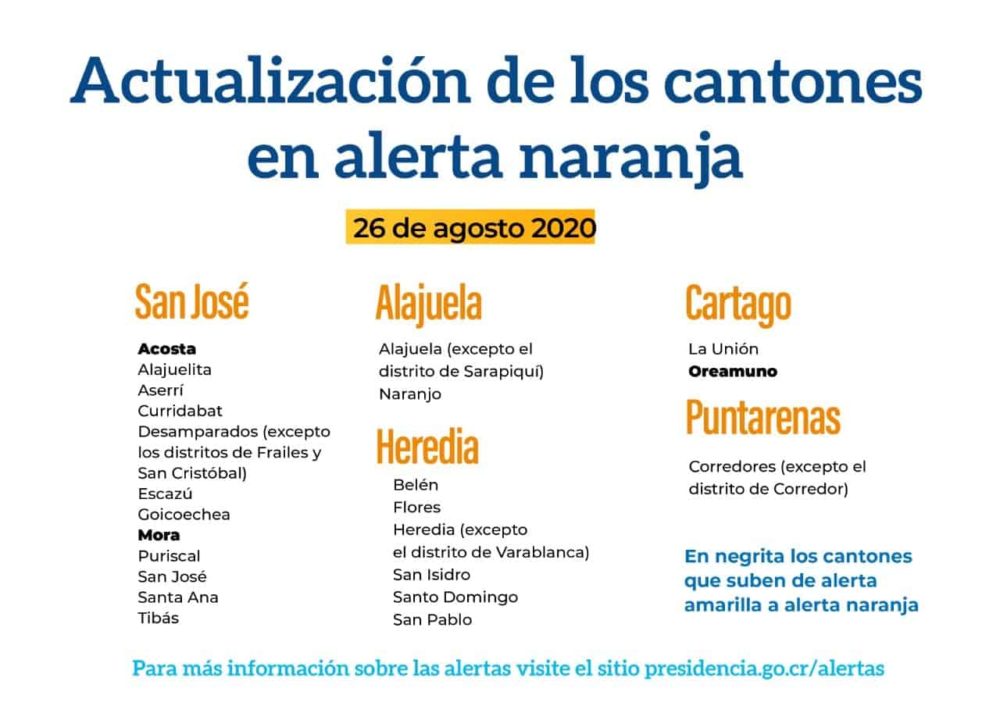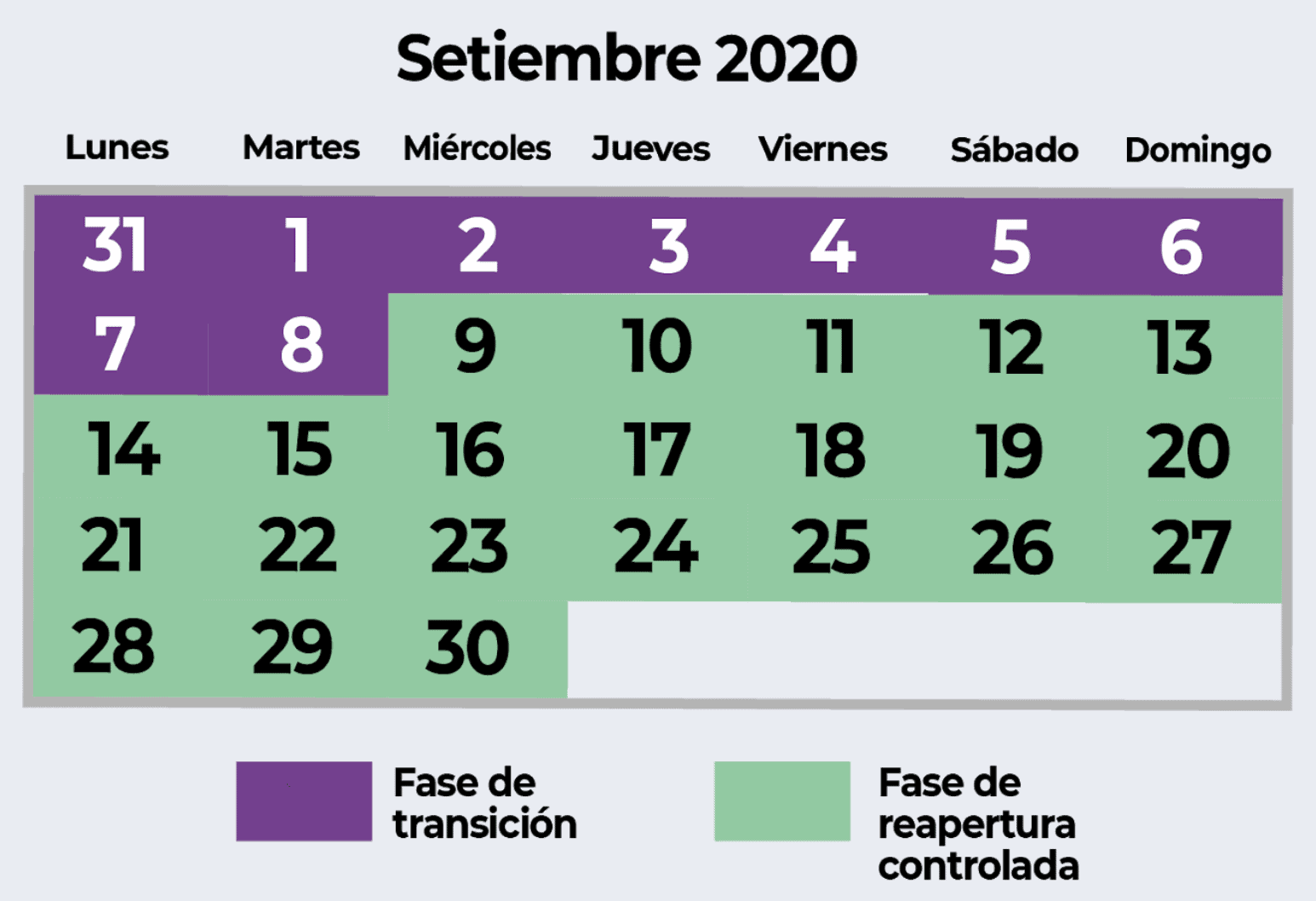President Carlos Alvarado and the National Emergency Commission (CNE) on Wednesday announced the schedule for Costa Rica’s September coronavirus measures.
The following measures will apply starting Monday, August 31.
‘Open’ and ‘transition’ phases
‘Transition Phase’ from Aug. 31 through Sept. 8
From August 31 through September 8, many establishments with sanitary permits (e.g. commercial businesses) in Orange Alert areas must close. Exceptions include: Supermarkets, hardware stores, delivery services, vehicle repairs, stores in general, restaurants and beauty salons.
The August 31-September 8 “Transition Phase” does not impact businesses in Yellow Alert areas. In these Yellow Alert areas, most commercial establishments can operate normally from August 31 through September 30.
‘Open Phase’ from Sept. 9 through Sept. 30
From September 9 through September 30, most commercial establishments can remain open nationwide, including in Orange Alert areas.
President Alvarado emphasized that the public must continue wearing masks, respecting physical distancing and avoiding unnecessary exposure to others.
The following activities and businesses still cannot operate throughout September: Mass-gathering events, bars and casinos, among others.
However, event halls can host business or educational events of up to 75 people (respecting physical distancing and keeping contact information for all attendees). Other activities, such as weddings or baby showers, are also permitted (30 people maximum).
Vehicular restrictions continue
The vehicular restrictions will be standardized for all of September throughout all of Costa Rica.
On weekdays, driving is permitted from 5 a.m. to 10 p.m. On weekends, driving is permitted from 5 a.m. to 8 p.m.
- Mondays: Vehicles with license plates ending in 1 and 2 cannot drive. Vehicles with license plates ending in all other numbers can transit freely.
- Tuesdays: Vehicles with license plates ending in 3 and 4 cannot drive. Vehicles with license plates ending in all other numbers can transit freely.
- Wednesdays: Vehicles with license plates ending in 5 and 6 cannot drive. Vehicles with license plates ending in all other numbers can transit freely.
- Thursdays: Vehicles with license plates ending in 7 and 8 cannot drive. Vehicles with license plates ending in all other numbers can transit freely.
- Fridays: Vehicles with license plates ending in 9 and 0 cannot drive. Vehicles with license plates ending in all other numbers can transit freely.
- Saturdays: Vehicles with license plates ending in even numbers cannot drive.
- Sundays: Vehicles with license plates ending in odd numbers cannot drive.
The border-area driving restrictions, which have typically been more stringent, will not apply in September.
As is customary, there are many exceptions to the driving restrictions. These include: People driving to/from work, people driving rental cars, people driving to/from a hotel reservation, and people driving to/from a medical appointment. (Drivers will be asked for proof if stopped by Traffic Police.)
Cantons in an Orange Alert
The following cantons are under an Orange Alert as of August 26. All others are under a Yellow Alert:

This list is updated weekly by CNE. In general, the heavily populated Greater Metropolitan Area (GAM) surrounding San José is under an Orange Alert, while the coasts and rural areas are under a Yellow Alert.
Click here for an interactive map of Orange/Yellow Alert cantons in Costa Rica.
Other items of note
- The Costa Rican Presidency has created this Spanish-language site with official documentation of the current and upcoming restrictions.
- Generally, establishments can remain open in accordance to the day’s vehicular restrictions (i.e. until 10 p.m. on weekdays and 8 p.m. on weekends).
- Beaches are open daily until 2:30 p.m., regardless of the location or phase.
- Most National Parks will be open, regardless of the location or phase.
- Driving to/from a non-traditional accommodation (e.g. an AirBnB) will qualify for an exemption to the vehicular restrictions.






